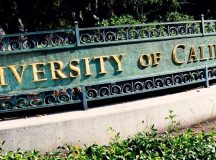Michael Yudkin is an emeritus Professor of Biochemistry at the University of Oxford.
The American Association of University Professors (AAUP) was founded in 1915, and one of its first acts was to issue a Declaration of Principles on Academic Freedom and Tenure. If you read the Declaration today and are determined not to be distracted by its quaint language and its exclusive use of the masculine gender, you’ll find a robust declaration of the value of academic independence. ‘If education is the cornerstone of the structure of society and if progress in scientific knowledge is essential to civilization, few things can be more important than to enhance the dignity of the scholar’s profession, with a view to attracting into its ranks men of the highest ability, of sound learning, and of strong and independent character. (…) It is … the absolute freedom of thought, of inquiry, of discussion and of teaching, of the academic profession, that is asserted by this declaration of principles.’
The AAUP further clarified its understanding of the concept of academic freedom in 1940: ‘Teachers are entitled to full freedom in research and in the publication of the results. (…) Teachers are entitled to freedom in the classroom in discussing their subject’; but it was not until 1966 that it set out the norms that should govern the relations between academic colleagues. ‘As colleagues, professors have obligations that derive from common membership in the community of scholars. Professors do not discriminate against or harass colleagues.’ [italics added].
The topic of discrimination against colleagues had been taken up decades earlier by the International Council of Scientific Unions (ICSU), founded in 1931. ICSU included scientific academies from around the world (for example, the National Academy of Sciences in the USA and the Royal Society in the UK), and even at the outset the eminence of these academies, and the international character of the organisation, gave it an exceptionally high status. More recently ICSU has been subsumed into the International Science Council, which now includes national academies of social sciences, such as the British Academy, as well as those of natural sciences. This change has expanded the meaning of ‘science’ to include all forms of scholarship, and has enhanced the standing of the Council still further.
ICSU’s formulation of what it calls the Principle of Universality of Science is regarded as definitive. ‘The free and responsible practice of science is fundamental to scientific advancement and human and environmental well-being. (…) In advocating the free and responsible practice of science, ICSU promotes equitable opportunities for access to science and its benefits, and opposes discrimination based on such factors as ethnic origin, religion, citizenship, language, political or other opinion, sex, gender identity, sexual orientation, disability, or age [italics added].’
That the AAUP fully endorsed the Principle of Universality became clear in May 2005, soon after the UK’s Association of University Teachers (AUT) had approved resolutions calling on all members of the AUT to ‘refrain from participation in any form of academic and cultural cooperation, collaboration, or joint projects’ with two universities in Israel. The AAUP’s response to the resolutions stated:
These resolutions have been met with strong condemnation and calls for repeal within the United Kingdom and elsewhere. The American Association of University Professors joins in condemning these resolutions and in calling for their repeal . . . [T]he AAUP [is] committed to preserving and advancing the free exchange of ideas among academics irrespective of governmental policies and however unpalatable those policies may be viewed [italics added]. We reject proposals that curtail the freedom of teachers and researchers to engage in work with academic colleagues, and we reaffirm the paramount importance of the freest possible international movement of scholars and ideas.
Given this whole-hearted adherence to the Principle of Universality, it is astonishing that in August 2024 the AAUP abruptly resiled from its opposition to academic boycotts, claiming that ‘individual faculty members and students should be free to weigh, assess, and debate the specific circumstances giving rise to calls for systematic academic boycotts and to make their own choices regarding their participation in them’. This claim derives from the AAUP’s sudden realisation that ‘[T]he freedom to produce and exchange knowledge depends upon the guarantee of other basic freedoms, including … the rights to freedom of thought, conscience, and religion; the right to hold opinions without interference; the right to freedom of expression … the right to peaceful assembly … and the rights to liberty of movement and freedom to choose one’s residence.’ It’s not clear how the AAUP has now become aware of the importance of these rights and their relevance to academic boycotts, or why it was unaware of them when it decisively rejected such boycotts in 2005.
AAUP’s recent statement is more than 700 words long, but it includes no reference to the Principle of Universality by which all scholars are bound. Nor does it include any guidance on how to distinguish among the large numbers of countries that don’t, like the AAUP’s utopia, ensure all the freedoms listed above. One country where the AAUP’s cherished freedoms are conspicuously absent is China, but recent history assures us that in practice there will be no systematic boycott of Chinese academic institutions. By contrast, Israel has been at war with Hamas for more than a year, and the practical effect of the AAUP’s abrupt change of view is to endorse the increasingly shrill calls for boycotts of Israeli universities. The AAUP cites no coherent reason for suddenly permitting academic boycotts, saying only that its previous policy was ‘controversial’. Presumably ‘controversial’ is a euphemism for ‘opposed by activists who seek to exploit the AAUP for their own political ends’.
AAUP’s August statement continues ‘We reiterate that academic boycotts should neither involve any political or religious litmus tests nor target individual scholars and teachers engaged in ordinary academic practices, such as publishing scholarship, delivering lectures and conference presentations, or participating in research collaborations.’ This remark is, at best, naïve. The AAUP knows very well that supporters of the academic boycott take their instructions from the organisers of the BDS (Boycott, Divestment and Sanction) movement, whose entire history is marked by attempts (often successful) to disrupt presentations by Israeli scholars and to prevent the publication of their articles and their participation in research collaborations. I think it’s safe to predict that when those who agitate for academic boycotts of Israel quote the AAUP’s new statement in support of their actions, they will omit to mention the caveat that excludes individual scholars from the boycott.
Meanwhile let’s keep in mind the Principle of the Universality of Science, and let’s note that the AAUP’s recent volte-face places its members, and itself, in violation of the norms of academic conduct accepted by the world-wide community of scholars.





































